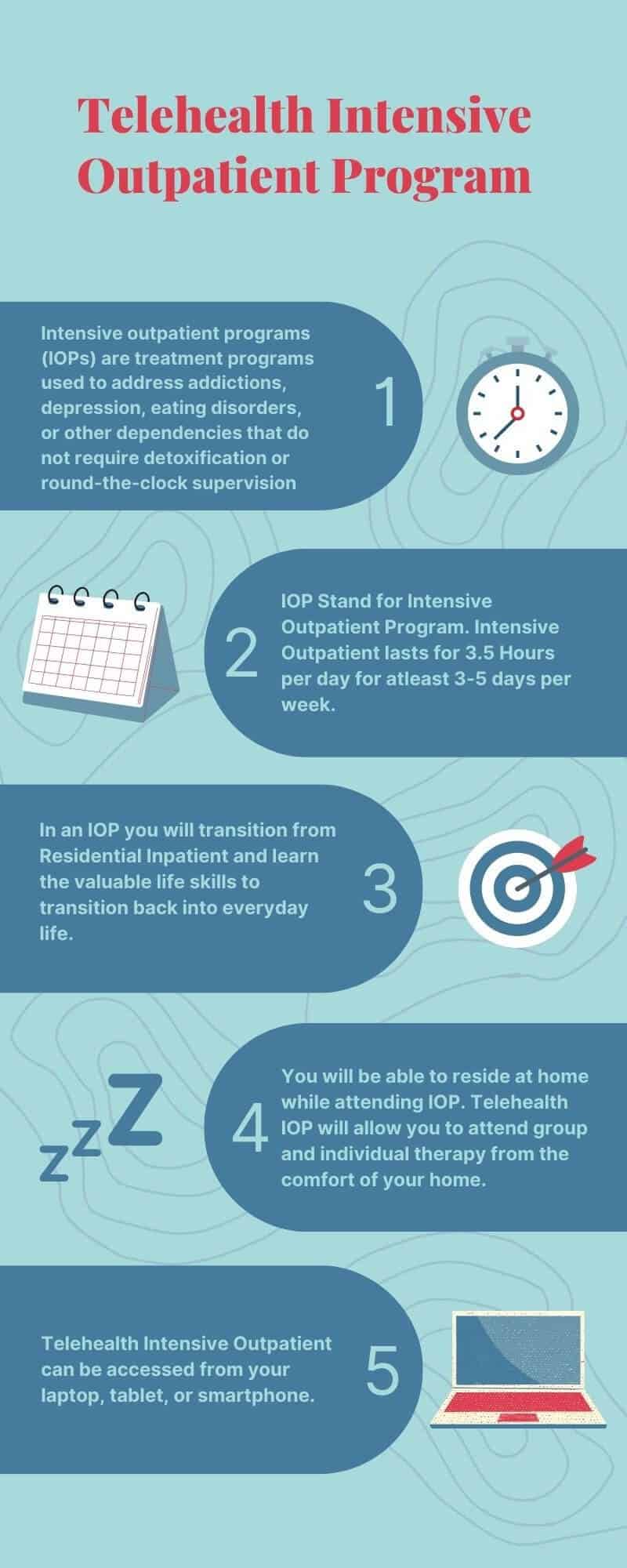Budget Friendly and Effective Intensive Outpatient Program (IOP) Services Near You.
Browsing the Complexities of Double Medical Diagnosis Treatment Within an Extensive Outpatient Program Setting
In the world of psychological wellness and addiction therapy, the crossway of twin diagnosis offers a nuanced obstacle that requires a detailed and tailored method. By exploring the intricacies of dual diagnosis therapy within this extensive outpatient context, a clearer path arises in the direction of alternative and sustainable recovery for those grappling with these intertwined obstacles.
Double Medical Diagnosis Introduction

Recognizing double medical diagnosis is crucial as it needs a comprehensive and integrated strategy to treatment. By recognizing the interplay between material use and mental wellness, doctor can customize interventions to satisfy the one-of-a-kind requirements of each person. This holistic strategy not just addresses symptoms yet additionally targets underlying elements that contribute to the double diagnosis.
In addition, without treatment twin diagnosis can result in a cycle of relapse and aggravating psychological health symptoms. By recognizing the intricacy of twin diagnosis and providing specific care, health care specialists can sustain people in attaining lasting recovery and improved mental wellness.
Tailored Treatment Plans
Acknowledging the complex interaction in between substance use disorders and psychological health conditions, the development of tailored therapy strategies is extremely important in attending to the intricacies of twin medical diagnosis in psychological health and wellness treatment. Tailored treatment strategies are personalized methods that take into consideration the one-of-a-kind requirements, difficulties, and goals of individuals facing dual medical diagnosis. These strategies are designed collaboratively by a multidisciplinary team of professionals, consisting of psychoanalysts, psycho therapists, social workers, and addiction specialists, to ensure thorough and incorporated care.
Tailored treatment strategies typically entail a mix of therapies, medications, and behavior treatments that target both the compound use problem and the psychological health and wellness problem at the same time. These plans might consist of cognitive-behavioral therapy, dialectical behavior modification, medication-assisted treatment, specific counseling, group treatment, and family treatment, among other evidence-based treatments. By tailoring therapy methods to individual conditions, tailored strategies can attend to the source of double diagnosis, promote long-term recuperation, and enhance total high quality of life for individuals having problem with co-occurring conditions.
Integrated Care Technique
An integrated treatment strategy in dual medical diagnosis treatment integrates clinical, psychological, and social treatments to resolve the complex requirements of people with co-occurring compound usage disorders and mental wellness conditions. This technique acknowledges that dealing with one element of a twin diagnosis without attending to the other can result in inadequate outcomes. By incorporating clinical treatments such as medication administration check here for psychological health and wellness problems with emotional therapies like cognitive-behavioral therapy for compound usage disorders, people get comprehensive care that targets all aspects of their twin medical diagnosis.
By integrating social treatments like household therapy, employment support, and community sources, the therapy comes to be a lot more alternative and tailored to the person's certain requirements - Intensive Outpatient Program (IOP). In general, an integrated treatment approach in dual medical diagnosis treatment within an intensive outpatient program setup aims to offer comprehensive, reliable, and customized care to individuals dealing with co-occurring problems.
Difficulties in IOP Setting
In the context of dual diagnosis therapy within an extensive outpatient program, navigating the complexities of co-occurring material use problems and mental health problems provides considerable challenges. Among the key hurdles in the IOP setup is the sychronisation of care in between mental health and wellness experts and chemical abuse experts to ensure a comprehensive therapy technique. This requires efficient interaction, cooperation, and a deep understanding of how these problems connect and affect each various other.

In addition, resolving preconception and resistance to treatment within the IOP setting can hamper progress. Some individuals might be reluctant to reveal their dual diagnosis or may really feel embarrassed, preventing their engagement in the restorative procedure. Conquering these barriers necessitates an encouraging and non-judgmental setting that fosters depend on and openness.

Collaborative Specialist Initiatives
Efficient dual medical diagnosis treatment in an intensive outpatient program demands my sources smooth cooperation amongst mental health and wellness experts and drug abuse professionals to ensure a comprehensive and integrated strategy to care (Intensive Outpatient Program (IOP)). This cooperation is crucial to attend to the complicated interaction between psychological wellness disorders and material abuse, as both elements require to be dealt with concurrently for successful outcomes. Mental health and wellness experts bring knowledge in identifying and dealing with psychological wellness problems, while compound abuse experts have actually specialized knowledge in addressing dependency issues. By interacting, these experts can produce customized therapy plans that deal with the one-of-a-kind requirements of each client, thinking about both their mental health and wellness and drug abuse difficulties.
Joint initiatives likewise prolong to routine communication and information sharing amongst group participants to ensure a cohesive treatment strategy. Inevitably, a joined front of specialists functioning with each other improves the efficiency of dual medical diagnosis therapy within an extensive outpatient program.
Conclusion
To conclude, effective double medical diagnosis treatment within an extensive outpatient program setting requires tailored therapy plans and an integrated treatment method. Obstacles might occur in this setup, but joint initiatives amongst experts can assist browse these complexities. By attending to the special requirements of people with co-occurring mental health and substance use problems, IOP programs can provide comprehensive and all natural treatment to sustain healing and overall well-being.